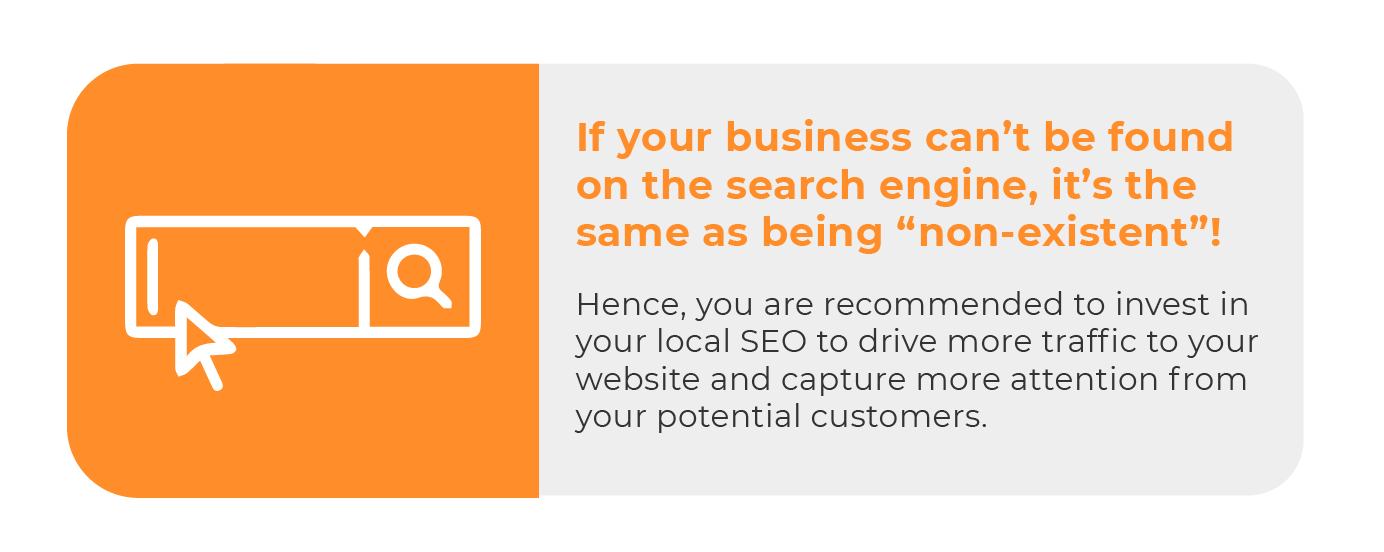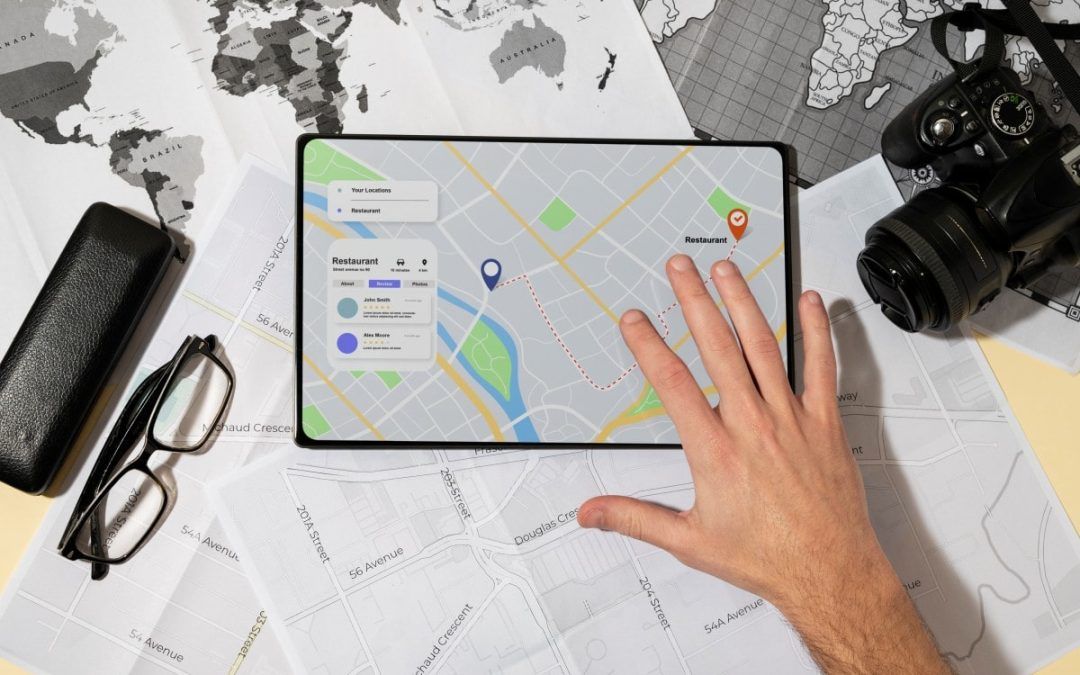Most of us, especially business owners and regular internet users, probably heard about “Local Listings”, but may not know how impactful it can be. Before we take an in-depth look at the importance of local listing, let’s take a quick look at these statistics and what they imply:
- 54% of Smartphone users search for business hours and directions to the stores.
- 46% of Searches on Google accounts for a local business or local service.
- 76% of Users visit the business within a day after searching for nearby stores.
So, what do these statistics tell you? In short, they indicate that having your business information (e.g. your company’s or outlet’s name, address and contact details) published online is necessary to enable more people to find your business premises such as your retail outlet and office.
What Are Local Listings?
In a simpler manner, “local listings” refers to published information about your business (name, address, phone) on local directories, websites, blogs, or social media. For local businesses, especially those with a physical premise such as a shop, retail store or outlet, or office, Local Search Engine Optimization (SEO) is essential. Simply put, local SEO helps enhance the local search engine’s visibility for local businesses, especially those with a physical premise. In addition, it enables you to increase organic traffic from searches conducted by internet users from nearby locations.
Why Are Local Listings Important?
Local listings are crucial for SEO as they help increase a company’s visibility through the local search by internet users, especially users within the nearby vicinity. What’s more, local listings can drive high-authority backlinks. When you have many online indicators that serve as solid evidence that your business exists, is set up in a local area, and is open for day-to-day business, your website will be more likely to rank higher in the search results.
In summary, local listings are essential to your business because:
- It helps internet users find your business and drive traffic to your website.
- It improves business visibility and increases the chance of people finding your business premise (e.g., your shop, retail outlets, office).
- It improves SEO rankings by telling Google that your business is the real deal.
- It helps build your brand’s authority and trust with your target audience.
If your business can’t be found on the search engine, it’s the same as being “non-existent”! Hence, you are recommended to invest in your local SEO to drive more traffic to your website and capture more attention from your potential customers.

Practical Tips that Boost Your Local SEO
Here are some practical tips to help boost your local SEO:
1. Leverage on Google My Business
‘Google My Business’ is a valuable tool that can help your business meet Google’s requirements as Google tends to support, validates, and shares its content generously. To fully leverage Google My Business, you can try these tips:
- Set up and verify a Google My Business page.
- Encourage the users of your products or services to share their reviews online.
- Try to use Google Posts within the account that you have set up.
- Post your reply to your customer’s reviews to indicate an authentic response.
2. Stay Active On Social Media Engagement
As quality content shared on social media is considered highly important by Google, it is time to start sharing your ‘Google My Business page on social media while you further align with social and search. Be sure to add posts to your Google My Business page frequently.
3. Consistency Do Matters
Make sure your company’s name, address, and phone number (abbreviated as NAP) are consistent when you post them online. Your NAP can be treated as crawlable HTML text on your website, enabling Google to show the information better according to location-based search results. NAP is usually placed at the footer or header of a website. Including your NAP on your “Contact Us” page is also essential.
Important Reminder: Unlike HTML text, images, cannot be crawled from search engines. Therefore, never include your NAP within an image only. Instead, you should use text format for your NAP.
4. Accuracy In Citations & Directories
Local data aggregators are large consumer and business data-gathering companies that source, clean up, and distribute individual and business NAP data to publishers, marketers, and location-based service providers such as search engines and social media sites. Validate that your citations are always consistent and accurate across the data aggregators as discrepancies (e.g. spelling errors, abbreviations, wrong phone number) will hinder Google from determining which information about your business is correct which will affect the search results where your business may not be displayed.
5. Assess Your Local SEO Performance
Since SEO is an ongoing process, you can perform a comprehensive audit to assess your website’s performance and identify what areas you need to pay more attention to achieve your goals. A comprehensive audit of your local SEO will help you find out the following:
- Whether your information is accurate or not
- Whether your website is crawlable or not
- Whether any errors will prevent indexing
- Whether your website caters to all the on-page SEO elements which help rank your site
- Whether all your citations in the top business directories are accurate or not
- Whether your website is on par with your competitor’s site or not.
In a nutshell, after the audit, you will learn about your site’s performance and the areas you need to improve (e.g., content, link building, design, positioning, etc.). Other tips that you may use to enhance your local SEO include:
- Craft more relevant local content
- Strengthening the structure of your internal links
- Make sure your website is mobile-responsive
- Remember to add location pages to your website
- Make use of URL, headers, title tags, content, and meta description
- Take part in your local community

